#Ariane et Barbe-Bleue
Explore tagged Tumblr posts
Text

REMEMBRANCE OF THINGS PAST: The seven spouses of Bluebeard (Geraldine Farrar on the right being the seventh) in Paul Dukas‘ “Ariane et Barbe-Bleue“ on March 29, 1911 at the Metropolitan Opera. Arturo Toscanini conducted the United States premiere.
#classical music#opera#music history#bel canto#composer#classical composer#aria#classical studies#maestro#chest voice#Paul Dukas#Ariane et Barbe-Bleue#Geraldine Farrar#lyric soprano#soprano#Metropolitan Opera#Met#classical musician#classical musicians#classical history#history of music#opera history#historian of music#musician#musicians#diva#prima donna
12 notes
·
View notes
Text
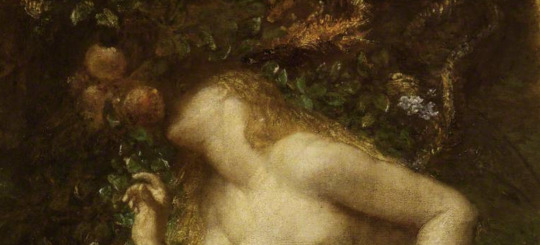




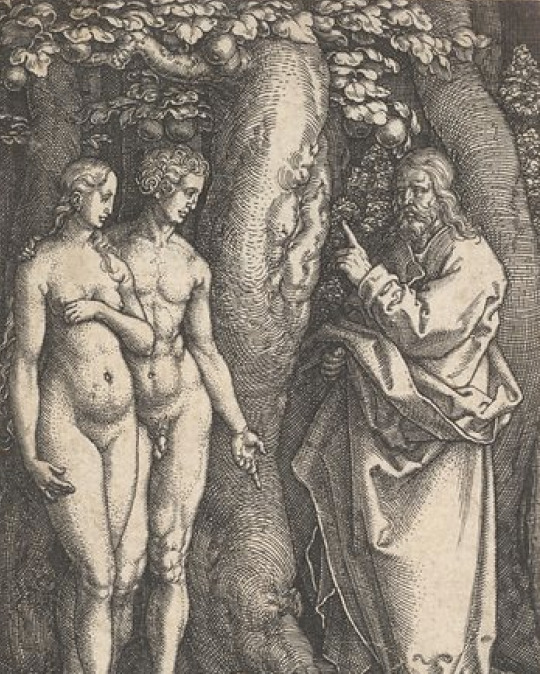

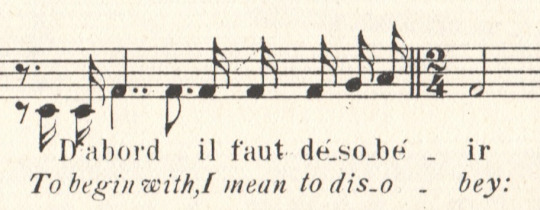

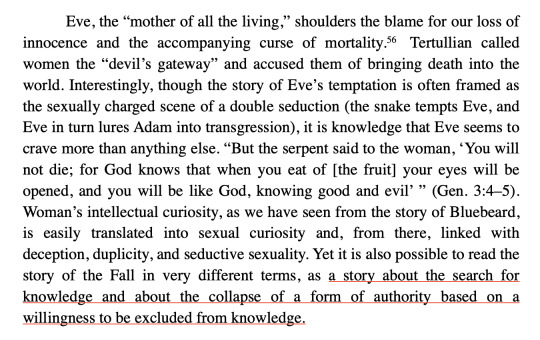
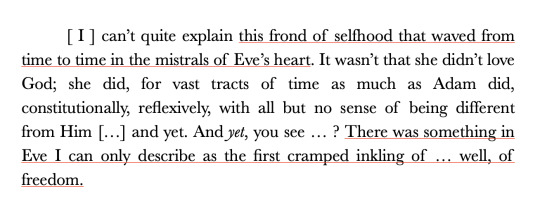
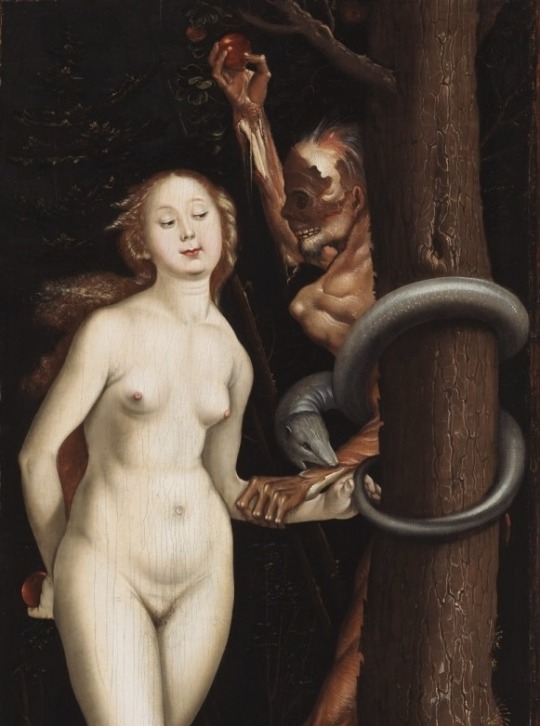
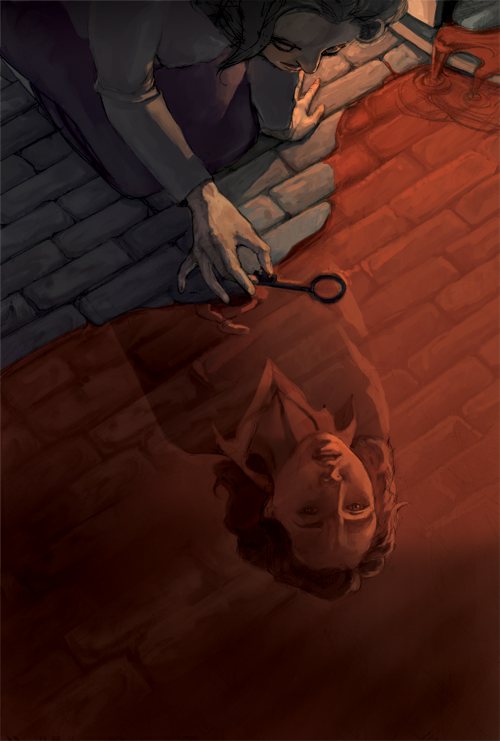
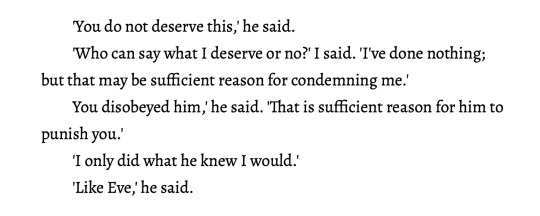

like eve before you
George Frederic Watts, Eve Tempted (detail) • Vievee Francis, "Apologia" • Edmund Blair Leighton, The Keys (detail) • Maria Tatar, Secrets Beyond the Door: The Story of Bluebeard and His Wives • Angela Carter, "The Bloody Chamber" • Heinrich Aldegrever, Adam and Eve • Gustave Doré, Illustration for "Blue Beard" • Paul Dukas, Ariane et Barbe-bleue • Glen Duncan, I, Lucifer • Hans Baldung Grien, Eve, Serpent and Death • Erika Steiskal, Illustration for "The Bloody Chamber"
#web weaving#bluebeard#fairytales and folklore#fairytaleedit#angela carter#the bloody chamber#vievee francis#maria tatar#glen duncan#gustave doré#biblical mythology#eve#myedit#it is the key that leads to the kingdom of the unimaginable#AND RENDER ME MORE EQUAL!#there really are so many interesting ways to read through this tale but the eve connections specifically jumped out quite often#not my most coherent set but you get it right! all this to say that eve (and her literary descendants) did nothing wrong!#I can't believe this has been in my drafts for years at this point. lol#spring cleaning time etc
606 notes
·
View notes
Text
youtube
Paul Dukas (1865 - 1935) - Ariane et Barbe-bleue: Act I: Ariane, que faite-vous? (The Nurse, Ariane, The Underground Chant) ·
Marilyn Schmiege
Choir: Cologne Radio Chorus
Conductor: Gary Bertini
Orchestra: Cologne Radio Symphony Orchestra
2 notes
·
View notes
Text
Alright, everyone, I am definitely planning to watch/liveblog the Vienna Don Pasquale (as requested by @rayatii) and the new Faust from Paris over the weekend, but please put which 2-3 of the following productions you would also like me to liveblog this weekend (the first six were the leftovers from today‘s list; I have also added four other productions that have been sitting in my to-watch bank for a hot minute):
Ariane et Barbe-bleue (Lyon, 2021)
or
La gioconda (San Francisco, 1979)
or
Francesca da Rimini (Paris, 2011)
or
La gazza ladra (Cologne, 1987)
or
Guillaume Tell [in 1776] (Southern Illinois Music Festival, 2016)
or
Orpheus in the Underworld (BBC TV movie, 1983)
or
La Juive (Munich, 2016)
or
Le roi Arthus (Paris, 2015)
or
Die tote Stadt (Strasbourg, 2001)
or
Orphée et Eurydice (Sydney, 1994)
#and this is when it dawns on you yet again that your operatic tastes are incredibly eclectic and strange#opera#opera tag#everybody’s working for the weekend#you choose!#(2 or 3 please)#Ariane et Barbe-bleue#La gioconda#Francesca da Rimini#La gazza ladra#Guillaume Tell#Orphée aux enfers#Orpheus in the Underworld#La Juive#Le roi Arthus#Die tote Stadt#Orphée et Eurydice#Dukas#Ponchielli#Zandonai#Rossini#Offenbach#Halévy#Chausson#Korngold#Gluck
9 notes
·
View notes
Photo










Still images from The National Opera of the Rhin’s rendition of Ariadne and Bluebeard, based on the tale by Maurice Maeterlinck, with Marc Barrard as Bluebeard and Jeanne-Michèle Charbonnet as Ariane.
#The National Opera of the Rhin#opera#Ariadne and Bluebeard#ariane et barbe-bleue#marc barrard#Michèle Charbonnet#bluebeard#fairytales#fairytale#fairy tale#fairy tales#barbe bleue#blue-beard#blue beard#barbe-bleue#barbebleue#barba azul#barba-azul#barbaazul#fantasy#bluebeard's wife#wife#husband#castle#romance#love
3 notes
·
View notes
Text
[Trying to see the proportional relation]
.....Alain Badiou
Ended his class with a reading
Of “Ariane et Barbe-Bleue” which
Is an opera by Paul Dukas. You
And me had gone pretty far
By the time this day came, and
Something very fragile in me breaks
When somebody says my name, or
Even a variant of it. I was tired.
I think Badiou discusses “Ariane”
In Being and Event which
I have not read. In class he said
That the story of the opera is
About the relationship between law
And freedom, and that it shows
That the desire for freedom is not
So simple. Ariane experiences an Event
That causes her to demand freedom, Badiou
Said, but she is unable to convince anybody
Else, any other women to want freedom; she ends up alone.
She genuinely falls in love with the wicked
Bluebeard at the beginning. Bluebeard
Who previously got women by having a castle
To lock them in. This woman Ariane
Does not have to be taken
By force. When she enters
His castle he hands
Her seven keys, six
Of which he gives her permission
To use, and leaves. She hears the cries
Of his other, imprisoned wives,
Coming from behind a door. So she uses
The forbidden key, releasing them.
Meanwhile Bluebeard is assaulted
By the local peasants, who want
To free Ariane, fearing her fate will turn out like
That of the women who came before her.
But Ariane is already free
In herself, and proves this freedom
By bringing the wounded Bluebeard
Home, caring tenderly for him, and then
Declaring that she’s leaving him for good.
By the end Bluebeard’s shattered, sobbing,
Bleeding. Ariane
Invites the other wives to leave with her
In a wrenching aria, pleading
With them one by one to taste
With her the freedom awaiting
Them, The World. But they all prefer confinement
Even though they had longed
For freedom before Ariane opened
Their door. Once liberty arrived they were no
Longer capable of it, preferring to serve; even a gutted,
Hollowed-out power. Ariane exits
Alone. The end. Badiou narrated
This with emotion and
I cried. Maybe cos I was tired and
That thing about my name or because
I am not heroic or free.
I had missed half of Alain Badiou’s
Lectures messing around with you
On the couch by the fire; in the women’s
Toilets; up on the hill. If this were a suitable parable,
And it isn’t, I would try to tell myself
That those very early mornings in Brooklyn when I sat
Up in your bed feeling wrong and
Got dressed and walked away, I should
Have stayed away cos I don’t need you.
Maybe I don’t need you. But I want
You. Maybe I don’t love you. But
I am getting to know you. Maybe
What made me cry in class was how tired
I was and how sad and hard
It is, and how rare, to undertake an act
That’s truly free, and not just a response
To a confused surge of drives and fears.
~ Ariana Reines
2 notes
·
View notes
Text
La Squadra Names
Based on this naming convention post I responded to and a few headcanons about the members sprinkled here and there added in.
Risotto Nero ➡️ Dante di Nero
Reasoning Behind Real Name:
Named after biological mother and aunt’s biological father, Dante Ferraro I.
Last name came from adoptive uncle’s side.
Family Background:
Most of the biological mother’s side of the family originated from the Piedmont region. Biological father’s side came from Sicily.
Family traces back to Sicily and Armenia, although there is no more connection to the latter.
Biological parents currently live in Sicily. Risotto and his immediate family resided in Turin.
Reasoning Behind Code Name:
Name chosen by Sorbet and Gelato when initiated. Was given a list of names and picked the first one that caught his eye.
Became Risotto Nero after being promoted to leader of La Squadra.
Immediate Family Info:
Grew up with his adoptive aunt, uncle, and younger cousin.
Cousin’s name was Alberto di Nero. RIsotto picked it out himself when he was five.
Sorbet ➡️ Alessandro Versace II
Reasoning Behind Real Name:
Named after his father and hoped to carry the family name.
Preferred to be called Sandro by his closest peers and teammates. Most still call him Sorbet out of respect.
Family Background:
Family came from Calabria, Italy but have long history of family members being from Sicily.
Part Greek and Sicilian on his father’s side by descent.
Immediate family lived in Calabria until they had to move to Sicily when they became poor.
Reasoning Behind Code Name:
Name was chosen by the mafioso that recruited him to Passione.
Original code name was Granite di Versache before stepping down as senior member of La Squadra.
Immediate Family Info:
Grew up with a father and mother. Was an only child.
Had a dog name Dolce as a child but gave it away when his mother became too sick to care for it.
Gelato ➡️ Fabrizio Rosso
Reasoning Behind Real Name:
Named after his mother’s late half-brother, Fabriano “Rico” Cavallaro.
Was nicknamed “Pazzo Rico” as a kid for how crazy he was willing to go to get what he wants.
Unknown whether the surname comes from his mother’s side or father’s side.
Family Background:
Both parents claim their respective families came from Sicily, Italy, but there are no historical record to confirm or deny it.
All surviving family members had in Sicily all their life and no one ever thought about leaving their region alive.
Majority reside in some run-down neighborhood sprinkled around the region.
Reasoning Behind Code Name:
Name was chosen by Polpo when he was inducted into Passione.
Original name was Affogato Rosso before stepping down as senior member of La Squadra.
Immediate Family Info:
Grew up with a father, mother, and 12 younger siblings. Only 7 of them would be alive or not missing by the time Gelato was 18.
Remaining siblings are named Stefano, Leone, Noemi, Oscar, Carina, and Carlo. Carina and Carlo are twins and Noemi was part of a set of triplets.
Stefano and Noemi are Gelato’s full siblings while the rest are half-siblings. He still regards all as his full blood.
Ghiaccio ➡️ Ghiaccio Francescon
Reasoning Behind Real Name:
Originally went by Ariana Bianchi before transition. Named after his mother’s favorite opera Ariane et Barbe-bleue.
Never got a chance to choose a new name as a male so he stuck with his code name instead.
Last name was mother’s maiden name. Original last name came from his step-father.
Family Background:
Part Venetian on his mother’s side. Biological father’s side is unknown, though rumored to be of French origin as well as Italian.
Step-father came from Florence but grew up in Venice before meeting Ghiaccio’s mother.
Family mostly lived all around the world, depending on what they needed to train for, but their home is based in Rome.
Reasoning Behind Code Name:
Name given to him by Risotto when he joined La Squadra.
Ghiaccio personally asked Risotto for one and immediately took the name to heart ever since.
Immediate Family:
Had a biological mother but raised by step-father after she passed away. Biological father was ex-husband that his mother divorced before Ghiaccio was born.
Grew up with step-father and older half-brother. Half brother’s name is Amadeo Müller. Last named belong to previous ex-husband before Ghiaccio’s biological father.
He later became known as Secco under Cioccolata’s control.
Illuso ➡️ Isidoro de Spagnola Fernández
Reasoning Behind Real Name:
Simply goes by Isidoro by his friends or just Illuso to his teammates.
As a designer, he went by the moniker ISI, due to it’s seemly symmetrical appearance, and signed his work as such.
Follows naming convention where both surnames are used as part of his name. de Spagnola is his father’s surname and Fernández is his mother’s surname.
Family Background:
Immediate family immigrated from Spain so parents can pursue their art careers.
Overall family history goes as far as a noble family of Castille that started marrying into the royal family before eventually off-shooting from the Habsburgs in the 1500s.
Only a few distant family members have remained in Spain. Others, like Illuso’s immediate family, have moved to other places around the world.
Reasoning Behind Code Name:
Moniker was eventually used for his mercenary alias and eventually evolved to become the name Illuso.
Wanted to stand out from the other “food-based” code names.
Immediate Family:
Grew up with a mother and father as well as two older siblings. Mostly raised by older siblings due to parents’ negligence.
Older sister and brother are named Catalina and Hugo respectively.
Prosciutto ➡️ Francesco di Aiello
Reasoning Behind Real Name:
Given by his mother because it sounded regal and “Hollywood” enough to possibly make it big as an actor.
No one knows his real name is Francesco except for Pesci during a night of excessive drinking. The latter was sworn into secrecy afterwards.
Takes on mother’s surname but has considered changing it for various reasons.
Family Background:
Mother’s family came from Campania and history goes as far as that. Biological father is unknown but rumored to be from Rome or Sardinia.
Moved around a lot in Rome to avoid getting evicted.
Reasoning Behind Code Name:
Name given by Ghiaccio after noticing how the Stand’s abilities resembles the moisture being sucked out of pork when making Prosciutto.
Initially was skeptical about the name reasoning but went with it anyways.
Immediate Family:
Grew up with a single mother and half younger brother. Younger half brother’s name is Cassio Montagna.
Biological father left the family after Prosciutto’s birth, despite promising to help raise him.
Cassio left home shortly after witnessing Prosciutto kill their mother and became his biological father’s legitimate son soon after.
Neither brothers have seen each other since. Cassio refuses to acknowledge Prosciutto, despite the other trying to reach out whenever he can.
Formaggio ➡️ Massimo Umbro
Reasoning Behind Real Name:
Named after actor Massimo Serato, who his father was a fan of.
Grew up struggling to pronounce his name and ended up earning the nickname Mo for a while. Absolutely hates that nickname now and will beat you up if you call him that out of nowhere.
Was nicknamed “Il Surcieddu” as a kid by an old visiting Sicilian man that he tried to pickpocket.
Family Background:
Both sides of the family come from the Umbria region, father was from Perugia and mother from Terni.
Family history goes back to the 1000s from farmers residing in the area. No one in the family does farm work anymore.
Family is full of cousins and distant relatives that either live in Umbria or Sicily.
Reasoning Behind Code Name:
Came up with the name Formaggio as a joke but stuck with it. Was actually eating cheese when he came up with it.
Tried to get his teammates to call him Gio as his nickname instead but it never happened.
Immediate Family:
Grew up with a mother and father, alongside 6 other siblings as a middle child.
Older brothers are Mattia, Gabriele, Lorenzo, and Tommaso. All of them passed away right before Formaggio decided to change his life around and become a line-worker at a factory.
Younger sisters are Guilia La Porta and Sofia Orsatti. Both have already married and taken their husbands’ names by the time Formaggio first met La Squadra
Pesci ➡️ Luca Passalacqua
Reasoning Behind Real Name:
Named by his grandparents. Parents wanted to name him Andrea but were ordered not to.
Pesci has debated on whether to be called Andrea instead ever since he joined La Squadra.
Nicknamed Lulu by Sorbet and Gelato.
Last name dates back to an old merchant family known for foreign imports during the Renaissance.
Family Background:
Both families come from Portofino, though they have some family history of being from Venice and Milan. However, his grandparents’ controlling nature makes it hard to confirm or deny facts beyond what they’re willing to say or fabricate.
His father’s side has established a successful fishing business for years, even centuries, under that name.
Mother’s side is mostly unknown to Pesci, since she was adopted as a child and grew up in Portofino.
Reasoning Behind Code Name:
Given the name Pesci after a member commented about his background in the fishing industry.
Stuck with it after Prosciutto mentioned it was a good name to have.
Immediate Family:
Grew up with his father, mother, and paternal grandparents. Was an only child
Parents struggled to conceive him and pressured to so by grandparents. Pesci always asked for a sibling and never understood why he never had one until he joined La Squadra.
Melone ➡️ Ezio Romana
Reasoning Behind Real Name:
Parents literally chose a random name that would be simple yet memorable in an academic setting.
Considered changing his last name to his late wife’s in memory of her.
Family Background:
Family history is unknown beyond being Italian. No one on both sides really bothered to track their heritage. Most members live around the world in various countries.
Only knew that parents used to live in France and Germany before moving to Italy in order to pursue their education and careers, and may be French or German too.
Lived in Rome his whole life until he moved alone to study at Polytechnic University of Milan.
Moved to Turin briefly for work before going back to Milan to pursue his doctorate and new job.
Reasoning Behind Code Name:
Had a habit of signing his letter E sideways, making it resemble the letter M.
Illuso suggested choosing a name that started with an M and the name Melone stuck ever since.
Immediate Family:
Grew up with a mother and father as an only child.
Had a late wife named Vittoria “Tori” Ann Shelly, a student from England he met during a work event and eventually was a classmate of his during their doctorate program.
Melone refuses to talk about�� ever since she passed and will get terrifyingly angry if pushed to do so.
#jjba#jjba vento aureo#golden wind#JoJos Bizzare Adventure#headcanons#jjba headcanons#name meaning#naming conventions#backstories#risotto nero#jjba risotto#sorbet and gelato#jjba sorbet#jjba gelato#ghiaccio#jjba ghiaccio#jjba illuso#illuso#jjba prosciutto#prosciutto#jjba formaggio#formaggio#jjba pesci#pesci#jjba melone#melone
29 notes
·
View notes
Text
Trying to see the proportional relation By Ariana Reines
Trying to see the proportional relation Of one memory to another One is so strange, and then To try and see what looms And doesn’t for the other person Who was there, it gets stranger, Especially when you’ve read His email. I don’t know how people Understand their lives, measure Their sensations against “objective” Or so-to-speak democratic estimations, Whether people accept the externality Of events, “events,” as things That happen to them. I refuse To accept some coagulate Of other people’s Impressions in exchange for this Privacy, no matter how flawed it is. This is lyric poetry. It has to be. It has No other hope. What was it About you and me that made whatever Happen to us. In New York Everything fell apart. What I dreaded And expected. But still. Tonight It is dark and the weather is cooler Than it’s been. It has taken A while for Fall to break; the global Warming kept me in summer Love with you like I was under a Fermata. Now that the times Are changing, I feel Even more for you; or I feel nothing. I can’t tell; it’s kind Of scary. I was sick of thinking About you this morning but I was listening to Bob Dylan and Leonard Cohen in order to think about You for literary purposes. When I feel nothing for a person I get scared I’m losing my humanity And that turning cold means My heart’s been botoxed: we’re All fucked. I watched a movie on YouTube Called Ladies and Gentlemen, Mister Leonard Cohen that was made when He was still just a poet and only Famous in Canada. He’s a pretentious little nerd In it, self-important, teacher’s pet wit. I think that, making music, he became So much nakeder, much more desperate. The talent, real, even pure, even Natural, had to ripen in The artificial man. Alain Badiou, on the day Of his class, said, “Because an event Is pure rapture, an event disappears Immediately: it does not exist Objectively, but only by appearing And disappearing.” This is both Precise and vague; it is attractive I guess. I guess since you and me did not Disappear immediately, it was Not pure rapture, not in these Terms, but my smile Was real each time I swallowed Your cum. Getting Fucked by you was great; I could Feel it in my organs, but You didn’t make me go insane Except for maybe once Or twice. Actually maybe I am Being unfair. Maybe the fucking really Was that great. In this moment I Can’t remember. I just read a poetry Review in which the reviewer States that a certain book Made his cock feel as though It were tall as a tree. That’s Nice. I have no idea What it feels like to have A cock. Sometimes I feel As though I’m getting close To understanding and then Something happens to make Me have no clue again. When Sinan Fucks me, we lose our individuality So severely it’s like we’re both Gasping after an animal that’s his Cock that is beyond us and I lose All sense of the world. His cock’s Not even him, and he’s not him either And we aren’t anything. It’s strange, the possessive. Didn’t Thomas Mann write a book called Herr Und Hund or something like that? Man’s best friend. What belongs To him. Me and Sunder Talked about how scary and arousing It is to watch men masturbate, cos Everyone relates differently to his. Like dicks are always almost but never Quite another. Je est un autre, Said that brat Arthur Rimbaud. I am definitely in love with you As I write this. You are so petty And superfluous I cannot stand You. Sinan is definitely In love with me. I know, because I saw him tonight. I love Him too. You are gracious To accord me the space and time In which to develop, or to elaborate Upon, as the French say, these Extreme emotions I am, despite The odds and certain lapses, So capable of feeling. It was good to slap Your face and to admit That your asshole Made me nervous. Your eyes had a way Of going soft and shiny When you said the really Tender things. We admitted It was intimidating For us both to hear each other describe People we’ve fucked and been In love with. I’m proud of what We accomplished together. Alain Badiou Ended his class with a reading Of “Ariane et Barbe-Bleue” which Is an opera by Paul Dukas. You And me had gone pretty far By the time this day came, and Something very fragile in me breaks When somebody says my name, or Even a variant of it. I was tired. I think Badiou discusses “Ariane” In Being and Event which I have not read. In class he said That the story of the opera is About the relationship between law And freedom, and that it shows That the desire for freedom is not So simple. Ariane experiences an Event That causes her to demand freedom, Badiou Said, but she is unable to convince anybody Else, any other women to want freedom; she ends up alone. She genuinely falls in love with the wicked Bluebeard at the beginning. Bluebeard Who previously got women by having a castle To lock them in. This woman Ariane Does not have to be taken By force. When she enters His castle he hands Her seven keys, six Of which he gives her permission To use, and leaves. She hears the cries Of his other, imprisoned wives, Coming from behind a door. So she uses The forbidden key, releasing them. Meanwhile Bluebeard is assaulted By the local peasants, who want To free Ariane, fearing her fate will turn out like That of the women who came before her. But Ariane is already free In herself, and proves this freedom By bringing the wounded Bluebeard Home, caring tenderly for him, and then Declaring that she’s leaving him for good. By the end Bluebeard’s shattered, sobbing, Bleeding. Ariane Invites the other wives to leave with her In a wrenching aria, pleading With them one by one to taste With her the freedom awaiting Them, The World. But they all prefer confinement Even though they had longed For freedom before Ariane opened Their door. Once liberty arrived they were no Longer capable of it, preferring to serve; even a gutted, Hollowed-out power. Ariane exits Alone. The end. Badiou narrated This with emotion and I cried. Maybe cos I was tired and That thing about my name or because I am not heroic or free. I had missed half of Alain Badiou’s Lectures messing around with you On the couch by the fire; in the women’s Toilets; up on the hill. If this were a suitable parable, And it isn’t, I would try to tell myself That those very early mornings in Brooklyn when I sat Up in your bed feeling wrong and Got dressed and walked away, I should Have stayed away cos I don’t need you. Maybe I don’t need you. But I want You. Maybe I don’t love you. But I am getting to know you. Maybe What made me cry in class was how tired I was and how sad and hard It is, and how rare, to undertake an act That’s truly free, and not just a response To a confused surge of drives and fears.
0 notes
Text
I trust what you are seeking is found in the tale, Ariane et Barbe-bleue.
Honestly, I’d be fascinated to see how Bluebeard would work in EAH. Like, in the show it’s implied that no one really dies playing out their story and the book even gives examples of characters avoiding their deaths and it being okay (like Ginger’s mom). How would a story where there have to be deaths work? Sure, It’d be fine for the one destined to be the last wife but what about the ones who have to be his previous wives? Is there a way around their deaths or are they just screwed?
15 notes
·
View notes
Text

Suzanne Berchut, called Suzanne Balguerie (29 June 1888 – 17 February 1973) was a French operatic singer. Admired by Fauré, Dukas, Poulenc, and Messiaen, she was one of the greatest sopranos of the interwar period. Balguerie studied singing at the Conservatoire de Paris. She first became known through concerts, which allowed her to interpret the modern music that interested her most. She died in Saint-Martin-d'Hères on 17 February 1973 at age 84. In 1921, at the Opéra-Comique, for her first appearance on stage, Balguerie played Ariane in Dukas' Ariane et Barbe-Bleue. Her performance won praise from Gabriel Fauré who said : "I don't think there is a more important role for the theatre, both in terms of its proportions and in terms of all the qualities it demands. Mrs. Balguerie emerged from the ordeal triumphantly. [...][She] possesses, at the same time as a beautiful warm, well timbred, extended voice, a sure voice, and, rare quality, a very remarkable verbal articulation. [...][She] played this role of Ariane whose nuances are infinite, with a truly remarkable accuracy and simplicity". Balguerie then made a career at the Opéra-Comique. She played Donna Anna in Don Giovanni, the countess in The Marriage of Figaro, Tosca and Mélisande. In 1923, she appeared in Fauré's Penelope. She first sang the role in 1931." In 1925, Albert Carré, the director of the Opéra-Comique, scheduled Tristan und Isolde for Balguerie. As with Ariane, it was a triumph: "Madame Balguerie, feline, passionate, a sorceress... with a prodigious voice, is the Wagnerian Isolde herself". Balguerie sang Isolde 275 times. In 1936, Balguerie premiered two of the Poèmes pour Mi by Messiaen. "She did it with extraordinary vocal power and dramatic intensity", wrote the composer, who was at the piano. The same year, Adrien Rougier dedicated two of his Trois mélodies sur des poèmes d’Albert Samain, pour soprano et piano to her. At the Opéra-Comique, Balguerie premiered works that are not very popular today. In 1922, Jean Cras' Polyphème and Alfred Bachelet's Quand la cloche sonnera.[8] In 1923, La Brebis égarée, Darius Milhaud's first opera, with a libretto by Francis Jammes. In 1924, Henri Rabaud's L'Appel de la mer. In 1927, Balguerie premiered Léo Sachs[9] Les Burgraves at the Théâtre des Champs-Élysées which she then revived at the Opéra Garnier.At the Opéra Garnier, in 1923, she sang the role of Brünnhilde. In 1932, she premiered Alfred Bachelet's Un jardin sur l'Oronte, and, in 1934, Georges Martin Witkowski's La Princesse lointaine, with a libretto by Edmond Rostand. She also performed as Marguerite in a series of Faust. In 1944, at Bordeaux, she premiered Richard Strauss' Die ägyptische Helena in France.
#Suzanne Balguerie#Conservatoire de Paris#Opéra-Comique#Ariane et Barbe-Bleue#Paul Dukas#Don Giovanni#Le nozze di Figaro#Wolfgang Amadeus Mozart#Tristan und Isolde#Richard Wagner#Opéra Garnier#Charles Gounod#Faust#Die ägyptische Helena#Richard Strauss#Tannhäuser#Aïda#Giuseppe Verdi#Fidelio#Ludwig van Beethoven#La Princesse lointaine#Georges-Martin Witkowski#Die Walküre#Les Contes d'Hoffmann#Jacques Offenbach#Tosca#Giacomo Puccini#Pénélope#Gabriel Fauré#Sigurd
1 note
·
View note
Video
youtube
Paul Dukas - Ariane et Barbe Bleue Introduction to act 3
3 notes
·
View notes
Text
if anyone is interested in learning about different operatic adaptations of the Bluebeard story and how they relate to feminism, this is happening from March 22 to March 26!
#opera#opera tag#feminism#Bluebeard#free streaming#Femmes libres?#online festival#Duke Bluebeard's Castle#Ariane et Barbe-bleue#Ariadne and Bluebeard#Bartok#Bela Bartok#Dukas#Paul Dukas#Opéra de Lyon
6 notes
·
View notes
Photo


En petits groupes, le Mardi 17 Avril et le Vendredi 20 Avril.
Le début de cette troisième séance de CLAS s’ouvre sur un résumé plus détaillé des quatre contes sélectionnés par les enfants.
S’en suit un petit exercice afin de s’assurer que les personnages principaux ont été correctement identifiés. Les enfants doivent ainsi les séparer en trois groupes bien précis : héros/héroïnes, gentils et méchants. Certains personnages, dont le développement au cours de l’histoire les fait passer par ces trois catégories, nous donne du fil à retordre ! Le Prince transformé en Bête est-il méchant, gentil... ou le héros de son conte éponyme ?
Vient ensuite le moment tant attendu de choisir son rôle ! Les personnages de notre future histoire ont été répartis de la sorte :
- Mathis : les Domestiques métamorphosés en objets (La Belle et la Bête) - Clara : la Fée (La Belle et la Bête) - Lilou : Belle (La Belle et la Bête) - Louise : l’épouse de Barbe Bleue (Barbe Bleue) - Naomie : l’Aigle (L’Enfant et l’Eclair) - Gabriel : le Cyclope (L’Enfant et l’Eclair) - Candys : Gretel (Hansel et Gretel) - Fabien : la Sorcière (Hansel et Gretel)
- Maxime G. : Gaston (La Belle et la Bête) - Maxime D. : la Bête (La Belle et la Bête) - Alana : les Sœurs de Belle (La Belle et la Bête) - Alicia V. : Barbe Bleue (Barbe Bleue) - Alicia D. : les Princesses emprisonnées (Barbe Bleue) - Lucas : Bernard (L’Enfant et l’Eclair) - Nolan : Zeus (L’Enfant et l’Eclair) - Sarah : Ariane (L’Enfant et l’Eclair)
0 notes
Text
KLASSIEK
25/02/2017 - Brussel - opera ‘Pénélope’
Op zaterdag 25 februari ging ik met Jelissa, Anthony, Chloé, Ellen, Caro, Warre, Enzo en Alexandre naar een operastuk in Bozar. Het stuk heette ‘Pénélope’ en is geïnspireerd op Homeros’ ‘Odyssea’.
Het verhaal gaat dus over de terugkeer van Odyseus naar zijn thuis. Dit is een lange, gevaarlijke en moeilijke tocht. De hoofdrol van Pénélope werd vertolkt door Anna Caterina Antonacci.
Mijn mening over de opera was verdeeld. Ik vond het leuk om de hele ervaring eens mee te maken, maar de opera zelf kon me niet echt boeien. Ik denk dat dit anders geweest zou zijn als we dichter bij het podium gezeten zouden hebben. We zouden ons meer betrokken gevoeld hebben. Aangezien we zo ver van het podium zaten, moest ik moeite doen om de ondertiteling te kunnen lezen. Hierdoor viel mijn aandacht ook wat weg van de zang. Er valt zoveel tegelijk te beleven, dat je niet alles gezien of gehoord kan hebben.
Ik zou graag nog eens een operaconcert bijwonen. Volgende keer zou ik toch een categorie hoger kiezen, ook al kost dat wat meer. Ik denk dat de prijs het echt wel waard is.
RECENSIE:
Antonacci is een impressionante Pénélope
Eind februari bracht de Munt twee concertante uitvoeringen van Pénélope van Gabriel Fauré in het Paleis voor Schone Kunsten in Brussel. Place de l’Opera-lezer Stefan Caprasse was erbij en doet verslag.
Pénélope, gebaseerd op het slot van de Odyssee van Homerus, is de enige opera van Gabriel Fauré en ging in 1913 in première in de Salle Garnier in Monte-Carlo. Opvoeringen van het werk zijn uiterst zeldzaam, wat ik als grote liefhebber van de klassieke geschiedenis en de mythologie erg spijtig vind.
Eind 2015 was in Straatsburg en Mulhouse een productie van Pénélope te zien in een regie van Olivier Py, met Anna Caterina Antonacci in de titelrol. Hier kon ik helaas niet bij zijn en dus verheugde het mij dat de Munt besloot het werk op te voeren met dezelfde sopraan, ook al was het concertant – iets wat ik, zeker voor zo’n werk, altijd maar een noodoplossing vind. Maar beter dat dan niets.
Van Antonacci heb ik nog een paar beklijvende uitvoeringen in het geheugen: haar uiterst dramatische Cassandre in Les Troyens in de Parijse Théâtre du Châtelet (ook op dvd verkrijgbaar) en haar vertolking van twee korte opera’s in Luik; Il Segreto di Susanna van Wolf-Ferrari en (uiteraard weer heel dramatisch) La voix humaine van Poulenc.
Ook in Brussel was haar vertolking enorm ingeleefd. Op elk moment wás ze Penelope, die vertwijfeld wachtte op de terugkeer van haar Odysseus. Ze beleefde enkele hoogtepunten, zoals haar aanroeping in het eerste bedrijf (‘Ulysse, fier époux!’), waarvan de climax beantwoord werd door – jawel – de stem van Odysseus himself buiten (verkleed als bedelaar).
Impressionant was ook de hallucinante manier waarop ze haar vrijers in de derde akte nog een ultieme waarschuwing gaf voor hun naderende ondergang: “Malheureux! Un orage affreux vous emporte!” Af en toe werd ze overstemd door het orkest, maar men moet er rekening mee houden dat Fauré een orkest van bijna wagneriaanse proporties gebruikt (dat normaal in een orkestbak zit), hoe prachtig ‘veteraan’ Michel Plasson het ook in de hand hield.
Rondom Antonacci stond een droomcast. Yves Saelens was een stralende en heldhaftige Odysseus. Vincent Le Texier was opvallend present als de trouwe Eumée en Sylvie Brunet Grupposo zong met haar mooie diepe noten een gevoelige voedster Euryclée.
Er waren uitstekende kleinere rollen (vrijers en dienaressen) en een indrukwekkend koor en orkest. De voorstelling had wel wat meer semiscenisch mogen zijn; dat zou de dramatiek zeker ten goede gekomen zijn. Op het einde bijvoorbeeld was een echte boog wel van pas gekomen. Maar laten we niet klagen bij zo’n prachtige uitvoering!
Het was de eerste keer dat ik de opera in zijn geheel hoorde. Muzikaal deed het me denken aan een overgang tussen Massenet (soms ietwat oriëntaals aandoende dansritmes) en doorgecomponeerde Franse werken als Pelléas et Mélisande en Ariane et Barbe-Bleue, met soms melodischere aria’s. Ik moest vooral ook denken aan Oedipe van Enescu. In het orkest vielen soms klanknabootsingen op, zoals van weefgetouwen (deed me een beetje aan Der fliegende Holländer denken), een onheilspellende kraai of de zoevende pijlen.
Ik ben blij dat ik dit mooie werk, waarvan ik al lang het bestaan wist, eindelijk eens gehoord heb. Overigens komt Odysseus van 14 tot en met 16 maart terug in het Paleis voor Schone Kunsten, dan de versie van Claudio Monteverdi, onder leiding van René Jacobs, met onder anderen Stéphane Degout en Katarina Bradic.

0 notes
Photo




Costume designed by Jacques Dupont for Grace Bumbry in the Paris Opera's 1975 production of Paul Dukas' Ariane et Barbe-bleue
From the Centre National du Costume de Scène
#costume#costume design#jacques dupont#grace bumbry#ariane et barbe-bleue#opera#theatre#fantasy#white#embroidery#gold#silver#metallic#jewels
237 notes
·
View notes
Text

Germaine (Léontine Angélique) Lubin (1 February 1890 – 27 October 1979) was a French dramatic soprano, best known for her association with the music of Richard Wagner. She possessed a brilliant voice but her later career was tainted with accusations of Nazi sympathies. Born in Paris, Germaine Lubin was soon taken to Cayenne in French Guiana where her father was a doctor, and from him she received her first piano lessons. She returned to live in Paris at the age of eight, and attended the Collège Sévigné with the intent of studying to become a doctor. Instead, in 1908 she entered the Paris Conservatory, where Gabriel Fauré was then the director. Fauré formed a high opinion of her voice —and her statuesque beauty— and would accompany her personally in performances of his songs. She left the Conservatory in 1912 after winning three first prizes for her singing, and she was immediately in demand for performances. Throughout most of her career however she continued to take voice lessons, studying for 10 years from 1912 with the Franco-Russian soprano Félia Litvinne. She would later work on roles with Lilli Lehmann and Marie Gutheil-Schoder. She also studied with Jean de Reszke, although she felt that he taught her little. In 1912 she made her debut at the Opéra-Comique, singing Antonia in The Tales of Hoffmann, to an audience which included Claude Debussy and Paul Dukas, and she enjoyed a great success. At the Opéra-Comique, Albert Carré gave her the chance to appear in several contemporary operas, including Gabriel Fauré's Pénélope (title role). She also sang Charlotte in Jules Massenet's Werther and the title role in Gustave Charpentier's Louise, and appeared in the world premiere of Le Pays by Guy Ropartz. Lubin made her first appearance at the Paris Opéra in 1915, in Vincent d'Indy's Le Chant de la cloche, and continued to sing there for nearly 30 years. In addition to standard French works, she also found success in the operas of Christoph Willibald Gluck and Richard Strauss, singing the first French performances of Elektra in 1932. She also created roles for d'Indy, Darius Milhaud, and Henri Sauguet (La chartreuse de Parme) and sang the title role in the 1935 revival of Ariane et Barbe-bleue by Dukas. In 1921 Lubin embarked on the series of Wagner roles for which she would be most admired: first Sieglinde in Die Walküre, then Elsa (Lohengrin), and finally Eva (Die Meistersinger), all sung in French at the Opéra. Later came Brünnhilde (Der Ring des Nibelungen) (1928) and Kundry (Parsifal) (1938). She performed Ariadne under Strauss in Vienna, also singing Octavian and Agathe to critical enthusiasm, later taking part in the Paris premieres of Der Rosenkavalier in 1927 and Ariadne auf Naxos at the Opéra-Comique in 1943. In 1930 she sang the role of Isolde (Tristan und Isolde) at the Paris Opéra for the first time and met with an ecstatic reception. In July 1939 she became the first Frenchwoman to sing Isolde at Bayreuth (under the baton of Victor de Sabata). Lubin hoped to sing also at the Metropolitan Opera in New York City, having been recommended to the Met's management by Kirsten Flagstad. However, she terminated her contract weeks before arrival, and never sang in the United States. After the German occupation of Paris in 1940, Jacques Rouché sought to re-open the Opéra and invited Lubin to return to sing Alceste. This was followed by performances of Fidelio and Der Rosenkavalier, and in 1941 she again sang Isolde, this time with the visiting company of the Staatsoper from Berlin under the direction of Herbert von Karajan.
#Germaine Lubin#Paris Conservatory#Opéra-Comique#Les contes d'Hoffmann#Claude Debussy#Jacques Offenbach#Jules Massenet#Werther#Paris Opéra#Christoph Willibald Gluck#Richard Strauss#elektra#Richard Wagner#Die Walküre#Lohengrin#Die Meistersinger von Nürnberg#Parsifal#Der Rosenkavalier#Tristan und Isolde#Fidelio#Ludwig van Beethoven#Charles Gounod#Faust#Tosca#Giacomo Puccini#Götterdämmerung#Tannhäuser
3 notes
·
View notes